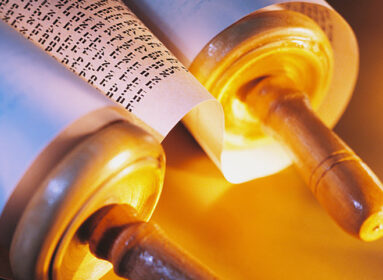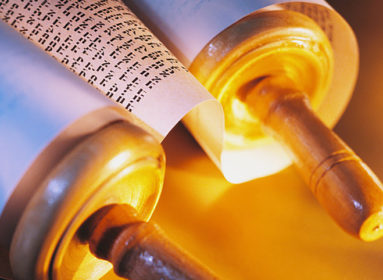
By Rabbi Tzvi Hersh Weinreb
“This is the most shocking and astounding phrase in the entire Torah!” These were the words uttered, in Hebrew, by the aging and ailing rabbi who was visiting Baltimore for medical treatment, where I lived long ago.
The honored guest to our community was Rabbi Simcha Zissel Broida, dean of the Chevron Yeshiva in Jerusalem. He sat with three or four of us and engaged in conversation about the weekly Torah portion,Yitro (Exodus 18:1-20:23), which we will read in synagogue this Shabbat.
Before identifying the shocking phrase he wished to discuss, he asked us to consider the following:
“Imagine that you are asked to write a brief biographical sketch of some saintly rabbinic figure, such as Rabbi Yisrael Meyer HaKohen, known as the Chofetz Chaim, and you happened to know that this man’s father-in-law was some rogue who had a disreputable past. Would you share the nature of the father-in-law’s past in a biography for all to see?”
He then launched into a very eloquent and forceful discourse about the ethical prohibitions against publicly disclosing a person’s past, or even reminding him of it in private. He quoted the following passage from Maimonides’ Mishneh Torah: “It is a serious sin to say to a penitent, ‘Remember what you once did,’ or even to mention those past actions in his presence, thus embarrassing him… We are admonished by the Torah not to abuse others verbally…” (Maimonides, Hilchot Teshuvah 7:8)
He then drew our attention to the opening verse in this week’s Torah portion: “And Yitro the High Priest of Midian and the father-in-law of Moses, heard about all that the Almighty had done for Moses and Israel his nation…” (Exodus 18:1)
“In the same breath,” he exclaimed, “he is referred to as a pagan priest and as the father-in-law of Moses! What a combination of titles! Yes, he was an idolater and the zaide of Moses’ children. This is as unlikely as the witch doctor of some primitive tribe who is also the very close personal advisor of the saintly Chofetz Chaim; or, the Archbishop of Canterbury as the mentor of some Chassidic sage!! Are not those juxtapositions jarring, astonishing, irreconcilable?”
Rabbi Broida went on to offer a suggestion as to why Yitro is introduced to us again in this week’s Torah portion in terms of his old title, High Priest of Midian. After all, at this point in time he had renounced his idolatrous past, and indeed, according to rabbinic tradition, was about to convert to Judaism.
“Our tradition respects the seeker, the person who searches for the truth and never tires of that search, no matter how many blind alleys he encounters and no matter how much frustration he experiences,” he explained. “Yitro is described as an individual who worshiped every idol in the world in search of the truth. As he became disappointed with each faith that he explored and with each religion that he practiced, he rejected that path and renewed his search. He retains the title High Priest of Midian because that title represents the heights he could achieve in the religious hierarchy within which he sought truth. That title is symbolic of the degree to which Yitro was a seeker of truth.”
Rabbi Broida told us that the lesson he was trying to teach us “is best conveyed in the words of Talmud in Tractate Gittin 43a: ‘No man truly achieves Torah knowledge without first experiencing error.’” When a person’s errors in life culminate in his finally making proper choices and correct decisions, then those errors are to be publicized and respected, because they are indicators of the degree to which that person was a seeker.
As far as I can recall, Rabbi Broida did not share with us on that occasion the following gematria. As you may know, every Hebrew word has a numeric equivalent, also known as a gematria, and often very diverse terms have identical numerical equivalents, suggesting otherwise unpredictable connections. The proper name “Yitro” has the numeric equivalent of 416. Two contradictory Hebrew terms have the exact same numeric equivalent. Those terms are “he was an idolatrous priest (komer haya lavodah zara)” and “The Torah (HaTorah)”, indicating that this one individual combined within himself two diametrically opposed tendencies. One of those tendencies, HaTorah, prevailed, but only because of the lessons learned from his experiences with idolatry. For those of you who are intrigued by gematria, I suggest you consult the commentary of Ba’al HaTurim to corroborate this one.
Every year since I was privileged to first learn Rabbi Broida’s lesson, I look forward to the opening verse of the Torah portion which we will all have the opportunity to read this week. Not only must we learn from our mistakes, but it is only by virtue of making those mistakes that we ultimately learn. That is a powerful and practical lesson indeed.
Rabbi Tzvi Hersh Weinreb is the executive vice president, emeritus of the Orthodox Union.







 Southern New England Jewish Ledger
Southern New England Jewish Ledger














